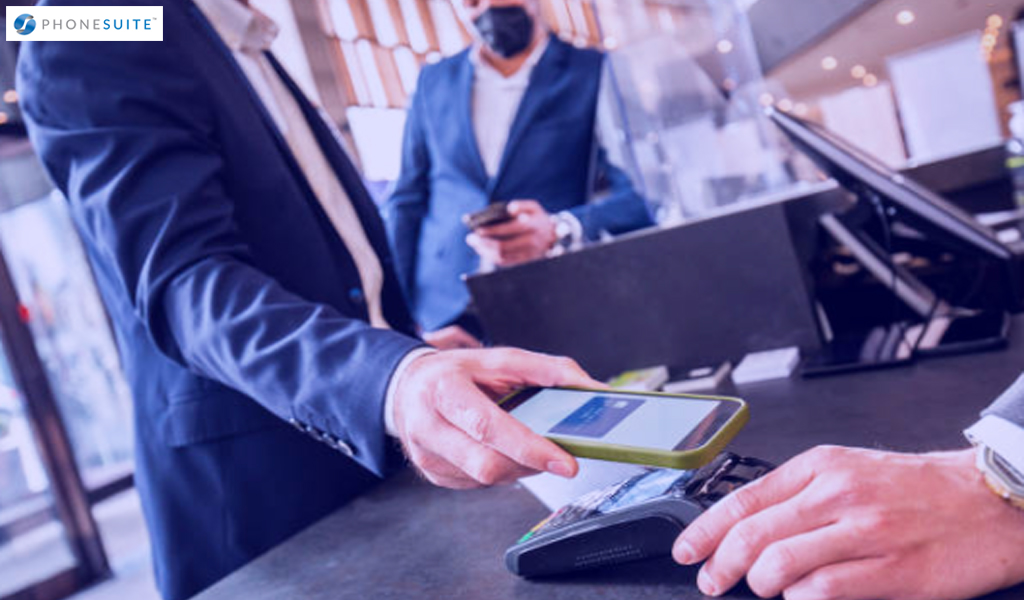
Overview Of The Current Landscape Of Hotel Technology
The world of hotel technology is constantly evolving, and as technology advances, so do the needs of hotel guests. The current landscape of hotel technology is constantly evolving as new advancements are made and consumer preferences shift.
Here’s an overview of some of the major areas of hotel technology that are currently being utilized:
Guest-Facing Technology:
Guest-facing technology includes mobile apps, self-check-in kiosks, virtual concierge services, and keyless room entry systems. These technologies allow guests to interact with the hotel and access services more conveniently and efficiently.
Property Management Systems (PMS):
PMS technology helps hotels manage reservations, room inventory, and guest information. This technology can also help automate various hotel operations such as accounting, housekeeping, and maintenance.
Revenue Management Systems:
Revenue management systems help hotels optimize their pricing strategies and revenue by analyzing various data points such as market demand and competitor pricing.
Customer Relationship Management (CRM) Systems:
CRM technology helps hotels manage and analyze guest data to better understand guest behavior and preferences. This information can be used to provide more personalized experiences and improve guest loyalty.
Internet of Things (IoT) Technology:
IoT technology can be used to connect various hotel devices and systems to a centralized network, enabling real-time monitoring and analysis of hotel operations. This can help hotels optimize energy usage, improve security, and streamline maintenance.
Artificial Intelligence (AI) and Machine Learning:
AI and machine learning technologies are being used to improve various aspects of the hotel experience, including personalized recommendations, voice-activated room controls, and chatbot customer service.
Overall, the current landscape of hotel technology is focused on providing a more convenient and personalized experience for guests while improving operational efficiency for hotels. As technology continues to advance and consumer preferences shift, it’s likely that we will see even more innovative hotel technologies in the years to come.
How to Choose The Right Technology For Your Hotel
As a hotel owner, you know that technology plays a crucial role in your business. Choosing the right technology for your hotel can be a challenging task, but it’s important to ensure that the technology aligns with your hotel’s goals and objectives.
Here are some key factors to consider when choosing the right technology for your hotel:
- Identify your Hotel’s Needs and Goals: Before selecting any technology, you should identify the specific needs and goals of your hotel. Consider factors such as the size of your property, the type of guests you attract, and the services you offer. This will help you choose technology that is tailored to your specific needs.
- Consider the Cost and ROI: Implementing new technology can be costly, so it’s important to consider the cost and potential return on investment (ROI) of each option. Evaluate the upfront costs, ongoing maintenance expenses, and the potential impact on revenue and guest satisfaction.
- Evaluate Ease of Use and Integration: Choose technology that is easy to use and integrate with your existing systems. Consider the training required for your staff and the compatibility of the technology with your current infrastructure.
- Look for Scalability: As your hotel grows, your technology needs may change. Choose technology that can scale with your hotel’s growth and adapt to changing industry trends.
- Research Vendor Reputation and Support: Research the reputation and customer support of each vendor before making a decision. Choose vendors with a track record of reliability, security, and excellent customer support.
- Consider Guest Experience: Choose technology that enhances the guest experience and aligns with their preferences. Consider options such as mobile check-in, keyless entry, and personalized recommendations.
By considering these factors, you can choose the right technology that aligns with your hotel’s goals and objectives and enhances the guest experience.
Benefits of Guest-Facing Hotel Technology
Investing in guest-facing technology is a smart move for hotels and resorts looking to stay ahead of the curve. Not only does it provide a seamless and personalized experience for guests, but it can also increase efficiency for staff and ultimately lead to better reviews and repeat business.
Improved Guest Experience:
- With guest-facing hotel technology, guests can easily access information about the hotel’s amenities, services, and local attractions. This improves their overall experience and makes their stay more enjoyable.
Increased Efficiency:
- Guest-facing hotel technology can help hotels streamline their operations, allowing them to serve guests more efficiently. For example, self-check-in kiosks can reduce wait times at the front desk, while mobile room keys can eliminate the need for traditional keycards.
Increased Revenue:
- By offering guests a range of technology options, hotels can generate additional revenue streams. For example, hotels may offer in-room entertainment services for a fee, or sell products through mobile apps.
Tips for Implementing & Nanaging Guest-Facing Tech
Implementing and managing guest-facing technology can be a complex process, but with the right strategy, you can successfully implement and manage technology that enhances the guest experience. Here are some tips for implementing and managing guest-facing technology:
- Start with a Clear Plan:
Before implementing any technology, create a clear plan that outlines your goals, timeline, and budget. Identify key stakeholders and set realistic expectations. - Choose Technology that Aligns with Guest Preferences:
Choose technology that aligns with guest preferences and enhances their experience. Consider factors such as mobile check-in, keyless room entry, and personalized recommendations.| - Ensure Staff Training and Support:
Ensure that your staff is trained and comfortable using the new technology. Provide ongoing support and ensure that staff members understand how the technology works and its benefits. - Monitor and Analyze Usage Data:
Monitor and analyze usage data to gain insights into guest behavior and preferences. Use this data to optimize the guest experience and adjust your strategy as needed. - Focus on Security & Privacy:
Ensure that the technology you implement meets industry standards for security and privacy. Protect guest data and ensure that sensitive information is not compromised. - Stay Up-To-Date With New Technology:
The hospitality industry is constantly evolving, so it’s important to stay up-to-date with new technology and industry trends. Evaluate new technology and determine if it aligns with your hotel’s goals and guest preferences.
- Start with a Clear Plan:
Types of Guest-Facing Hotel Technology
Online Booking Systems & Mobile Apps:
Many hotels now offer guests the ability to book their stay online or through mobile apps, making the booking process more convenient and accessible.
Mobile Room Keys:
With mobile room keys, guests can use their smartphones to unlock their hotel room doors instead of traditional keys or keycards.
In-Room Technology:
This includes things like smart TVs, wireless speakers, and voice-activated assistants that allow guests to control the room’s temperature, lighting, and entertainment options.
High-Speed Internet and Wi-Fi:
With more people using smartphones, laptops, and other devices during their stay, hotels have made it a priority to offer high-speed internet access to guests.
Self-Check-In & Check-Out Kiosks:
These kiosks allow guests to check-in and check-out of their rooms quickly and easily without having to wait in line at the front desk.
Digital Concierge Services:
Hotels may offer guests digital concierge services through mobile apps, allowing guests to easily access information about the hotel’s amenities, local attractions, and more.
Room Service Technology:
Hotels are now using mobile apps and in-room tablets to allow guests to order room service and other hotel services.
Contactless Payment:
In response to the COVID-19 pandemic, many hotels are now offering contactless payment options to reduce contact between guests and hotel staff.
What to Consider When Making Future Investments in Hotel Technology
When making future investments in hotel technology, it’s crucial to carefully evaluate your options and consider various factors to ensure that your investments align with your hotel’s strategic goals and provide a return on investment. Here are some key considerations:
Guest Experience Enhancement:
Prioritize technologies that directly enhance the guest experience. Look for solutions that offer convenience, personalization, and improved service quality.
Integration Capabilities:
Ensure that new technology can seamlessly integrate with existing systems like property management systems (PMS), central reservation systems (CRS), and customer relationship management (CRM) platforms. Integration streamlines operations and data management.
Ease of Use and Training:
Evaluate how user-friendly the technology is for both staff and guests. Consider the ease of implementation and the training required for your team to use it effectively.
Industry Trends and Innovation:
Stay informed about emerging technology trends in the hotel industry. While it’s important not to chase every new trend, being aware of innovations can help you make informed decisions.
Vendor Reputation and Support:
Research the reputation of technology vendors or providers. Ensure they have a track record of reliability, support, and ongoing development.
Compliance with Sustainability Goals:
Consider how technology investments align with your hotel’s sustainability goals. Eco-friendly technologies can reduce operational costs and appeal to environmentally-conscious guests.
Testing and Pilot Programs:
Before fully implementing a new technology, consider running a pilot program to assess its performance and guest feedback. This minimizes risks associated with large-scale adoption.
Long-Term Viability:
Assess the long-term viability of the technology. Ensure that it won’t become obsolete quickly and can adapt to evolving industry standards.
Regulatory Considerations:
Be aware of any local or international regulations that may impact your technology choices. For example, data protection laws may influence how you handle guest data.
Training and Change Management:
Plan for adequate training and change management to ensure that staff can effectively use the new technology and adapt to any workflow changes.
Guest Privacy and Consent:
When implementing technologies that collect guest data, be transparent about data usage and obtain guest consent in compliance with privacy regulations.
Disaster Recovery and Redundancy: Have contingency plans and redundancy in place to minimize downtime in case of technology failures or cyberattacks.
By carefully considering these factors, conducting thorough research, and engaging with stakeholders, you can make informed decisions when investing in hotel technology that will benefit both your guests and your business.
Why Us?
PhoneSuite Connectware is an excellent resource for hospitality managers who are looking to transform their business. The suite of products and services available from the company offers excellent features that help businesses run smoother, save money, and create a better customer experience. From cloud-based PBX systems to apps for internal staff communication and more, PhoneSuite has something that can meet the needs of any hotel or related business.
In terms of performance, quality, and value, PhoneSuite stands apart today as a leader in the hospitality industry when it comes to technology solutions. By investing in this suite of products and services you can be certain that your business is well on its way to being modernized with cutting-edge technology options. Make sure that before committing it’s important to thoroughly compare your options to ensure the best solution tailored specifically to your business’s needs.



